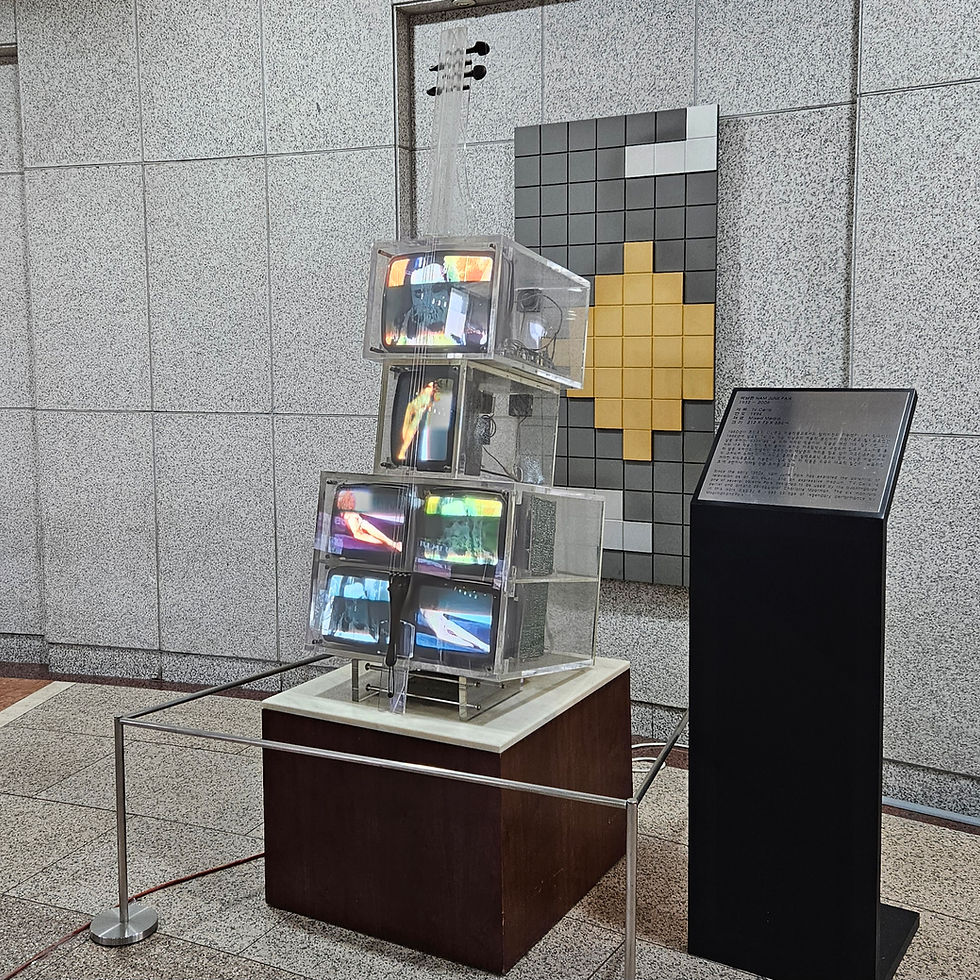Keep Your Ears Turned Toward Eizouken!
- Stefan Greenfield-Casas

- Mar 22, 2020
- 3 min read
Updated: Dec 30, 2021
So I just finished watching my anime of the season, Science SARU's anime adaptation of Sumito Ōwara's manga Keep Your Hands Off Eizouken! (2020). I can't really emphasize how absolutely wonderful (that is, having to do with wonder) this show is, and how deeply it affected me. I was going through a tumultuous time in my life when I first started watching it a few months ago, but it never failed to make me grin like an idiot while watching it. The premise is simple enough: three highschool girls—each of which is totally different on paper (Midori Asakusa, a shy otaku; Sayaka Kanamori, a money-obsessed thug; and Tsubame Mizusaki, a rich and privileged model)—join together to create a school club in order to produce anime. Because an anime (appreciation) club already exists at their school, they advertise themselves as a film club (hence, Eizouken, which I've seen translated as "video research club" and "film association") so as to maintain their agency while producing their anime.
There's a lot I can talk about in this show: from the technical elements of its gorgeous animation and layered worldbuilding, to abstract themes such as the aforementioned wonder and notions of community and friendship (the latter of which has been a special preoccupation of mine over the last few months). But in this brief post, I want to zoom in on the series and its relationship to music. From its catchy OP, chelmico's "Easy Breezy," to its J-Rock ED, Kami-sama Boku wa Kizuite Shimatta's "Namae no Nai Ao," and everything in between (with its score written by Oorutaichi), the music that spans the series is simply excellent. Just a few weeks ago, I posted on Twitter suggesting that Eizouken is this decade's ("generation's" might have been more accurate) equivalent of FLCL (2003):
And while it's easy to see the ambitions of the animation reflecting this claim (seriously, sakuga like crazy!), what really steered me in the direction of that particular claim was the show's score recalling the alt-rock sounds of The Pillows' score for FLCL.
But the attention to music is not limited to nondiegetic scorings and paratextual pieces. [Slightly more substantial spoilers for the show in the following.] At least as early as episode 6 (and I'm 90% sure before as well), the clubmates overtly discuss the effects sound can have on their anim—erm, "films." That they end up "recruiting" and hosting the (sole member of the) sound club in their studio itself speaks volumes. Episode 8 feels like it was a love letter written for me and starts with a whole discussion about the timing of music against the mecha (robot) anime they're premiering later that day. There's even a bit where one member suggests recycling music from another scene specifically to "create a motif linking the different scenes" (!!)

(For more information on the psychology of these sorts of effects, check out the research of music psychologists Siu-Lan Tan, Annabel J. Cohen, and Marilyn Boltz!)
But it's in the final episode where this emphasis on sound—and music more particularly—is finally demonstrated in full force. Having just completed their final project-product for Comiket the night before it's due for release, the group goes to finally add in the music they commissioned from an outside composer. Not having checked the music since the original demo, however, they're shocked to hear that the new, "sad vibe" music doesn't at all fit the tone of the anime they've produced. In this sense, music becomes the antagonist inherent, the "final boss" the girls must confront in order to succeed. How that all ends up panning out, I'll leave for you to find out during your own viewing of Eizouken (seriously, binge it on Crunchyroll now; it's concluded so you have no excuse). But the Eizouken's attention to sound in their productions (inclusive of voice, sfx, and music) across the series was something I greatly appreciated. To put it differently, I think it would be easy to create a meta-anime which focuses exclusively or even primarily on the process of animation. What sets Eizouken apart, however, is its attention to detail and acknowledgement that there's much more than just the visual which can make or break a film.
Not that this was a review per se, but...
Keep Your Hands Off Eizouken!
10/10. Anime of the season, Winter 2020.



Comments